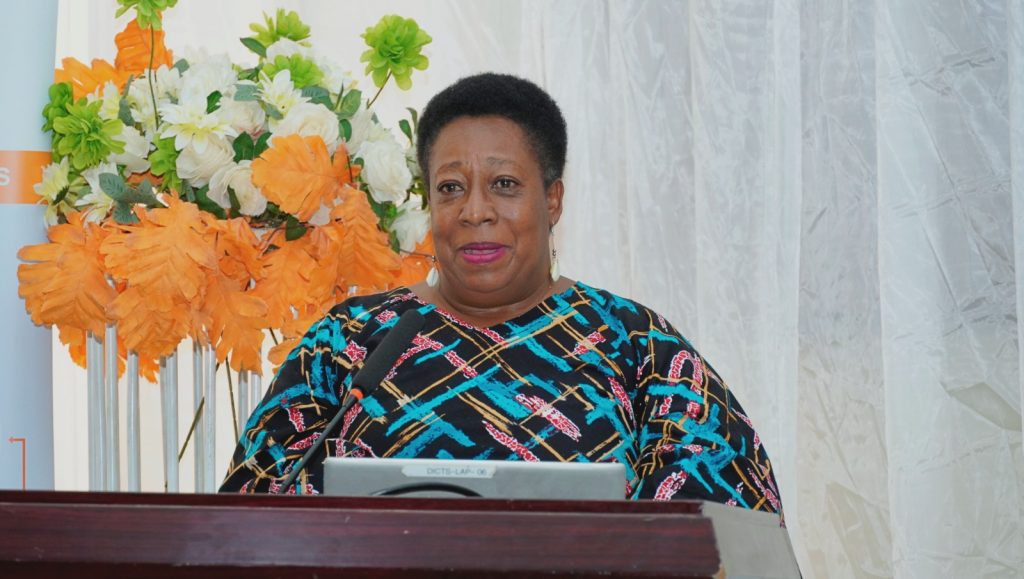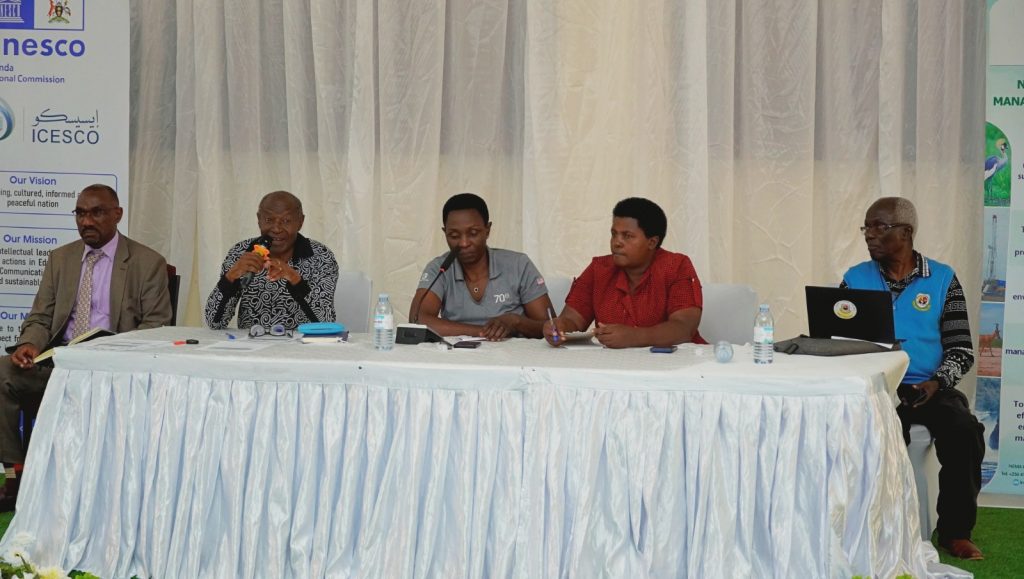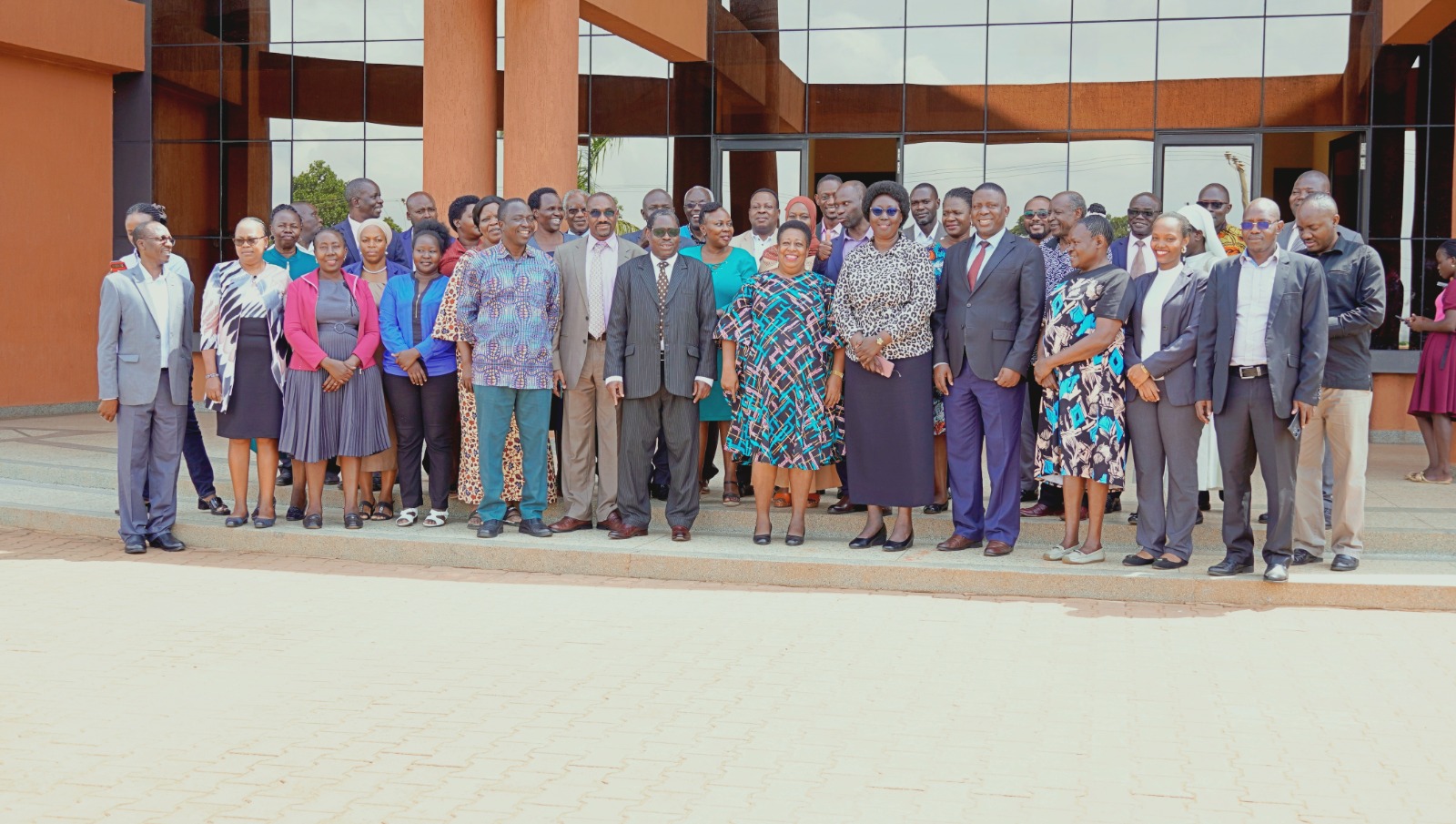Uganda reaffirmed its commitment to transforming education for a sustainable future by convening a high-level Leadership for Education for Sustainable Development (LEAD-ESD) Policy Dialogue and Workshop at Kyambogo University on 19th September 2025.
The Leadership for Education for Sustainable Development (LEAD-ESD) is a regional action-learning initiative led by UNESCO, UNICEF, and Kenyatta University, and is implemented in Uganda, Kenya, Rwanda, and Seychelles. It supports national efforts to build leadership capacity among teacher educators, policymakers, and education officers, with a strong focus on advancing SDG Target 4.7 through whole institution approaches.
The event served as a national platform to reflect on progress, identify gaps, and strengthen coordination mechanisms for integrating Education for Sustainable Development (ESD) into Uganda’s education system.
Hosted by the Ministry of Education and Sports, in partnership with UNESCO, UNICEF, the Uganda National Commission for UNESCO (UNATCOM), and Kyambogo University, the dialogue was part of the broader regional LEAD-ESD initiative.
The event brought together over 60 stakeholders, including representatives from the Ministries of Education, Environment, and Agriculture, the UNESCO Regional Office for Eastern Africa, Kenyatta University, UNATCOM, Kyambogo University, and other higher education institutions. Participants also included teacher training colleges, TVET institutions, universities, civil society organizations, development partners, and private sector actors.
This diverse, cross sectoral representation underscored the importance of collaborative leadership in advancing ESD at all levels of education.
The workshop featured policy presentations, data-driven discussions, and institutional showcases. Key focus areas included: Policy alignment, Capacity building, change project development for integrating ESD into national education systems
The opening session outlined Uganda’s progress on ESD, emphasizing alignment with the ESD for 2030 Framework and Sustainable Development Goal 4.7. Presentations highlighted key milestones such as: The development of a National ESD Framework, A draft ESD policy, Sectoral policies including the National Teacher Policy and the TVET Act 2025
Stakeholders discussed how these policies are driving curriculum reform, teacher training, and green school initiatives.

Ms. Frances Atima, representing the Permanent Secretary, during the opening of the public dialogue
Education for Sustainable Development builds the capacity of individuals to be critical thinkers with behavioral and attitude change that catalyzes and accelerates the integration of sustainability principles and achievement of all the 17 SDGs for a just and sustainable future.” UNESCO Representative, during the LEAD-ESD Policy Dialogue
Participants reviewed two key documents: The National ESD Policy Scoping Report and Preliminary findings from the ESD Baseline Study. These reports offered evidence on the current status of ESD integration in Uganda’s education system. While progress was acknowledged, the findings also revealed gaps, such as limited institutional coordination and uneven capacity across teacher education institutions.
A presentation from the National ESD Country Task Team outlined the mandate and structure of Uganda’s National ESD Working Group, aimed at fostering multi sectoral collaboration. Participants discussed the integration of sustainability principles across all education levels, from early childhood to university.
Teacher training institutions and other stakeholders presented change projects designed to localize and institutionalize ESD. These initiatives focused on: Curriculum greening, Climate-responsive teaching methods and Youth engagement in sustainability efforts
This session allowed institutions to share best practices, identify synergies, and explore opportunities for collaboration.
The workshop concluded with the following recommendations:
- Strengthen ESD leadership across educational institutions
- Mainstream ESD into teacher education programmes
- Promote civic responsibility and climate action through school programmes
- Expand partnerships across government, civil society, and the private sector

A panel comprising representatives from Kibuli PTC, the Ministry of Education and Sports, and Uganda Martyrs University presenting their change projects
The LEAD-ESD Policy Dialogue and Workshop marked a significant step in Uganda’s commitment to quality education and sustainable development. By bringing together institutional leaders, sharing national data, and fostering cross sectoral partnerships, Uganda is accelerating the transformation of its education system through empowering learners and educators to integrate ESD into their communities and beyond

